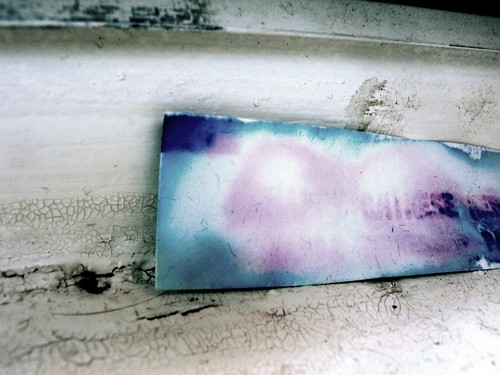Industry Trends: The Future of Perfumery
Those of you who followed closely the recent developments of Cropwatch’s petition and actions to restrain IFRA’s threats on the use of natural materials in perfumery recently may have already read IFRA’s public statement of their support of synthetics and promoting them as the main (if not the only) means to add scent to our lives.
If you managed to delve thus far into these recent developments, you are probably now left wondering what is the future of perfumery and where is the industry going. As it stands now, I made a few observations and speculations and I can only hope that regardless of how the mainstream perfumery is going to smell like, you, who love perfumes, will be able to at least make your own choice about how to smell and what to put on your skin.
IFRA’s official position on synthetics and against natural is going to create a clear schism in the industry. Natural vs. Synthetic will no longer be a theoretical debate in books, on blogs and perfume forums. It will be real separation between the industry of perfumes made only of synthetics, and perfumes made only of natural. There will be no in-between as we observed last century, with classics such as Jicky, No. 5 and others. There will be a complete dichotomy in the industry. These classics will most likely be gradually reformulated to include only synthetic substitutes, and more likely – will be replaced by new perfumes that call for no naturally sourced building blocks in their formulation.
Despite the power of the big fragrance & flaovour corporations, and organizations such as IFRA which stands behind the aromachemicals industry and support its efforts to ban naturals and vanish them from the face of the earth, I would like to be optimistic and say that this will not happen. While those mega-corporations are all plastic-happy in an excitement that resembles the love for lino floors and plastic jewelry in the 50’s – a vast portion of the consumer world (and the most educated, I must add) is moving towards the use of natural and organic materials in their life, and is trying to stay away from artificial, man-made materials, genetically engineered and pesticide-sprayed foods.
And so, intelligent consumers will soon collaborate with niche perfumery houses that care to keep using natural aromatics, and together they will support growers and distillers of natural essences around the world so these traditional crops will be maintained and cared for, and those precious essences that have been friends to mankind since the birth of civilization will be nurtured and preserved.
While the large companies are producing more and more perfumes that are less and less satisfying as a whole – the consumers are left to take matter to their own hands. We’ve seen the growing demand for bespoke and custom perfumes, and this is only going to grow. After all, in a fragrance market that adds more than 500 fragrances each year (I heard that this year it will be even 700 or 800!), it may be a lot more convenient, time efficient and cost effective to commission a personal perfumer rather than spend the year trying three fragrances a day until you find the right one…
Furthermore, perfume consumers will lean more and more towards creating their own personalized scents and scenting their own body products. This concept has been quite popular for many years, but now it will make even more sense than ever. People have been mixing and matching perfumes for a long time, and many companies have been trying to cash on that and launch elaborate lines of incomplete perfumes for that purpose (sold, of course, for more than an average, “complete” perfume would), and encourage over spending on behalf of the customer. I think more and more people will now be curious to learn how to blend their own perfumes instead of relying on the pre-mixed, often under-satisfying concoctions of such lines.
Will the prices for naturals go higher? Will the decrease because of the lack of demand from the large fragrance houses? We are yet to see. I am not an economy expert, but this situation could lead to interesting developments in the industry and the marketplace that I find very difficult to predict. But I think either way, the result will be extreme and will make a mark that will be hardly forgotten in the history of perfume.
You are invited to partake in this discussion and tell us what you think will happen to perfume in the future. Is there any hope? Are we going to have a choice as consumers? Are perfumers becoming mere puppets of large money-driven corporations? Are we going to be able to afford quality perfumes with natural essences in the future? Are ntural essences going to become completely extinct? Tell us what you think, we will listen and publish your comments.


